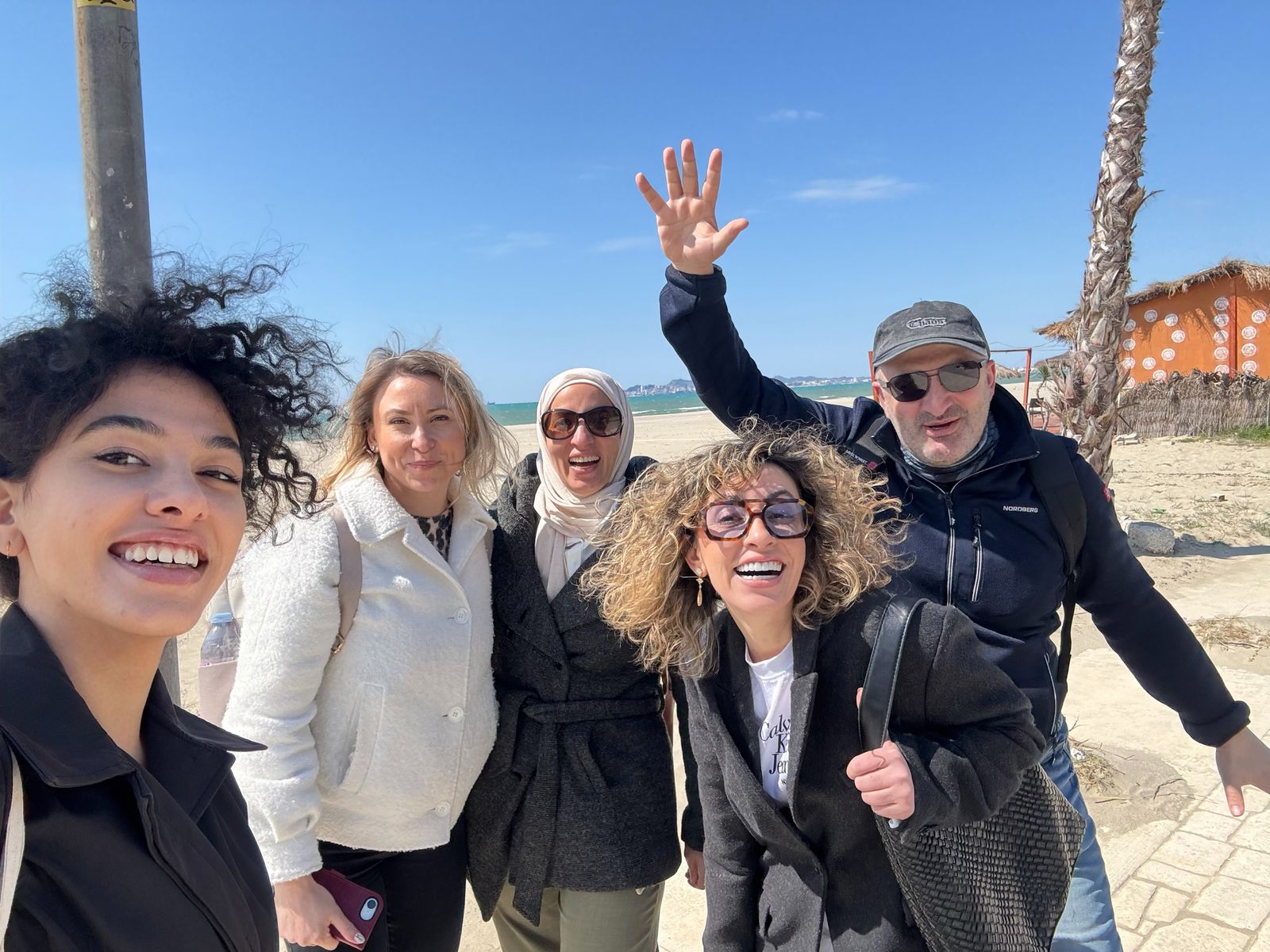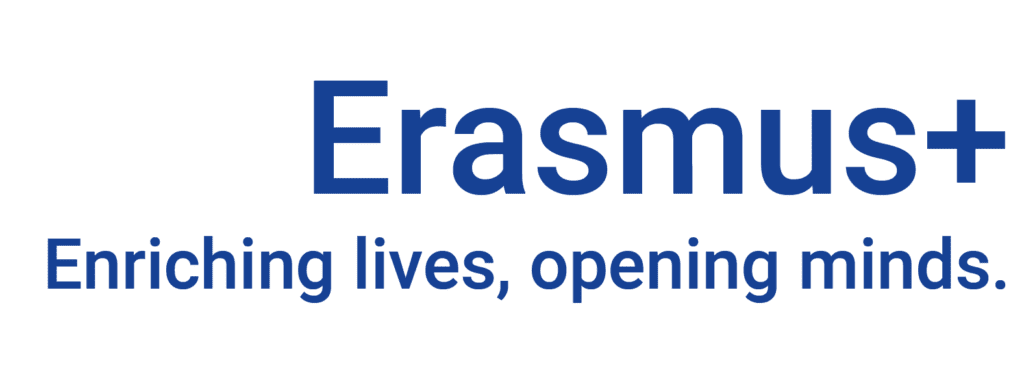Published by:
Beyond Borders Neighbours Together
From June 10 to 14, fifty youth workers from twenty-five countries gathered in Skhirat, Morocco, for the Beyond Borders partnership-building activity. We spoke with participants and organisers about stereotypes, social justice, personal growth, and the essential role of international youth cooperation that goes beyond the borders of the European Union.
The event centred on establishing a solid foundation for fruitful collaboration, with a focus on shared values, objectives, missions, and working methods as the basis for any quality partnership. Participants exchanged best practices, discussed challenges, and generated new ideas together.
Perspective from an organiser
Pauline Giraudet, a Project officer at SALTO Euromed and one of the event’s organizers, highlighted the importance of partnership-building activities between the Erasmus+ and European Solidarity Corps’ programme and partner countries. She outlined three key reasons for their necessity:
Firstly, it’s about mutual capacity building and enhanced cultural understanding. This cooperation challenges participants to explore their curiosities and confront their prejudices. It provides an opportunity to gain a deeper global cultural insight, to learn from one another, and to share expertise, she explained.
In terms of international cooperation, we all have something to learn from our neighbours, whether they are from programme countries or partner countries. Expertise exists everywhere, as do fears and prejudices. Closer cooperation between “Europe” and its neighbours fosters greater understanding, curiosity, and open-mindedness, and encourages active engagement in our communities, Giraudet added.
Giraudet also noted that white saviorism is a prevalent issue and that partnership-building activities are instrumental in overcoming limited perspectives.

The second crucial value of international youth cooperation is growth. This happens on a personal level, but it also extends professionally and fosters local community development. Participants become more involved and share their newfound knowledge, Giraudet shared.
As her third point, she emphasized community impact. Such events and cooperation spark new initiatives. We have several examples of individuals who transitioned from ‘regular’ jobs to becoming youth workers or who became more deeply engaged in their communities through international youth cooperation, she illustrated.
[Photo: Pauline Giraudet (on the right) with some of the co-organisers in Morocco. By Ahmad Mohsen]
A life-changing experience
Andrea Antonio Orlandi, a 23-year-old Italian activist based in Germany, exemplifies how a positive experience in international youth exchange can be transformative. Initially unfamiliar with Erasmus+ or the European Solidarity Corps, Orlandi found the prospect of becoming an international activist daunting.
I’m a queer person from a small town in Sicily. The drive for activism has always been within me. I spoke out. I was loud. I wanted to speak for me and for those who couldn’t or were afraid to speak. I felt I could never fully engage in activism as much as I wanted until I participated in international youth cooperation, Orlandi shared.
He stated that international youth work changed his life and helped to amplify his/their activist work. He/they now advocate(s) for providing opportunities for everyone. Orlandi runs an NGO in Sicily, facilitates youth work events, works as a freelance trainer, collaborates on an European level and leads projects focusing on solidarity and social justice. His/their dream is to work with SALTOs and the European Youth Forum to create a positive impact on a larger scale.
[Photo: Andrea Antonio Orlandi at the event in Morocco. From private collection.]


If we don’t continue international cooperation, we risk reverting to historical periods we don’t want to repeat. International cooperation reduces stigma, dispels negative assumptions and misconceptions, and fosters solidarity, Orlandi believes.
Youth work allows you to go beyond stereotypes that one might have. The in-person meetings intensify how untrue and unfair stereotypes are. It’s one thing to know that stereotypes are false, but another to experience and see it first-hand. It provides an aha moment, he/they concluded.
Personal and professional growth
Valya Martirosyan, from the Armenia-based Youth Initiative Centre, has been involved in international youth cooperation for over ten years. She and her team have benefited greatly from participating in study visits, capacity building trainings, exchanges and events, which helped them develop a unique concept for open youth centres. Their model combines best practices from across Europe and Armenia, creating an unique model on its own.
When people from programme countries visit us, they are often pleasantly surprised by our youth workers’ ability to maintain motivation and engagement among young people, Martirosyan explained, emphasizing that international cooperation offers opportunities for mutual learning.


Another value for programme countries is the promotion of true diversity and the chance to gain different perspectives on youth work. Expanding our horizons and promoting democratic values are crucial for both partners. In recent years, European countries have also faced challenges such as radicalization, discrimination and hate speech, mental health issues, and declining democracy. Broadening our perspectives helps us discover new solutions and better prepare to tackle these challenges, she stated.
Martirosyan has numerous examples of the life-changing impact on young people and youth workers: Those who return from international events feel empowered and more connected to Europe. Many improve their language and communication skills, pursue studies abroad, or become active in their communities. For young people, these cooperation events and international projects contribute to their professional growth.
[Photo: Valya Martirosyan. From private collection].
Although the event in Morocco was brief, it was incredibly impactful. We are already in contact with a group of organizations to start a new project focusing on hate speech and the importance of language use, she noted.
I personally met representatives from many countries, and it strengthened my resolve to continue working with them. I learned about different challenges and discussed ways to overcome them. It’s all about capacity building and professional exchange, Martirosyan added.





















